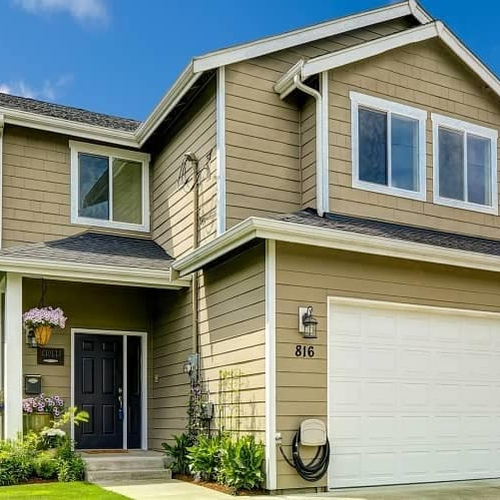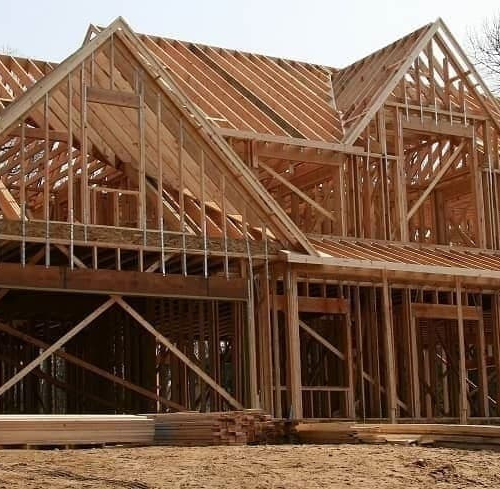What does turnkey mean?
Contributed by Karen Idelson
Sep 15, 2025
•6-minute read

When you’re shopping for a house, you may run across the term “turnkey home” and wonder what it means. If a home is turnkey, it means that the property is in great condition and does not need any additional work or repairs to be ready to live in. All you have to do after you buy the house is turn the key in the front door.
Buying a turnkey home is appealing to both potential homeowners and investors because it lets you avoid the effort of repairing or rehabbing a property. However, turnkey homes can be pricier than properties that need a bit of work, so it’s important to consider the pros and cons.
How do turnkey properties work?
A turnkey property is a home that is in great shape and ready for move-in. It does not require any renovations, repairs, or other maintenance to make it livable.
These homes are often marketed to potential investors as a passive way to get into the real estate market. For example, turnkey homes may come with a management company that handles the process of finding tenants, renting the property, collecting rent, and handling ongoing issues or maintenance. The owner just needs to buy the home and pay the mortgage.
Being able to be hands-off appeals to many first-time real estate investors who are concerned about the nitty-gritty aspects of real estate management, such as finding and screening tenants.
How much is a turnkey house?
In general, turnkey homes are more expensive than other homes with similar characteristics that are in need of basic repairs and maintenance. There are a number of reasons these properties are more costly.
- Renovations. Renovating or repairing a home costs money, so if the home has already been renovated, the seller adds those costs to the price of the home.
- Location. Some turnkey homes are in prime locations, which can add a premium to the property’s price.
- Management services. In some cases, home sellers may already have tenants in the property and work with a management service to manage the tenants. Investors buying a turnkey property can buy the home and keep the same tenants and management services instead of having to find new ones.
- Inventory levels. The number of turnkey homes on the market is usually low when compared to the number of homes that need some repairs that are available for sale. Low inventory drives prices up.
Who should buy a turnkey home?
Turnkey properties are usually marketed to real estate investors. There are two groups that these homes appeal to.
1. First-time landlords
One group that often finds turnkey homes appealing is first-time landlords. Buying and managing an investment property can take a lot of work. On top of getting the home into good shape to rent out, landlords need to find and screen tenants, deal with ongoing maintenance, and be ready to handle tenant concerns.
A turnkey property takes all of these concerns out of the investor’s hands because the management company handles these tasks.
2. People who don’t want to renovate a property
A key feature of turnkey properties is that they are in great condition and don’t need any repairs or other work to be livable. This can be appealing for investors who are not experienced with rehabbing homes.
It’s also appealing to people who want to buy a home to live in but who don’t have the expertise or time to buy a fixer-upper.
What to consider when buying a turnkey house
Turnkey homes can be a great option for certain buyers, but it’s important to consider the pros and cons before you start shopping for turnkey properties.
Pros
- No renovations. Turnkey homes are in move-in-ready condition, so you won’t have to do any additional work after you close on the home.
- Quicker cash flow. You can rent out a turnkey property as soon as you find a good tenant. Other properties may take weeks or months of rehab before they’re ready to rent out and start producing cash flow.
- Passive income and diversification. If a turnkey property comes with a management company, you don’t have to worry about most of the day-to-day aspects of being a landlord. It also makes it easier to invest in different real estate markets because the management company can handle issues at properties far from where you live.
- Appealing to potential tenants. Many renters will find turnkey homes appealing to rent because they’re in good condition. Investors should be able to charge higher rents and find high-quality tenants more easily.
Cons
Before buying a turnkey home, consider the drawbacks.
- Cookie-cutter designs. Many turnkey homes follow the same template, so if you’re looking for a property with character, you may not find a turnkey option.
- Smaller profit margins. Management companies handle a lot of the work for you, but they do charge for their services. The money you spend on management services directly reduces your profit.
- Less direct control. When you buy a turnkey home, you’re reliant on the management company to handle the day-to-day aspects of owning rental property. You have less direct control over how the property is managed, so you need to make sure you trust your management team to do good work.
How to find a turnkey house
If you’re interested in buying a turnkey house, there are a few ways you can look for them.
One is to simply look at home listings in your area. When examining properties, you’ll want to keep an eye out for the factors that make a home turnkey, such as:
- Recently renovated
- Not in need of repairs
- In a high-demand location
- Comes with tenants
If you find one that fits most of these requirements, take the time to tour and inspect the property. If it looks like it’s ready for someone to move in, it may be a good fit for a turnkey investor.
There are also companies that specialize in selling turnkey homes and online platforms that feature turnkey properties. Often, these are the same companies that serve as property managers for investors who buy these properties. These companies will maintain listings of properties that they have available for sale.
How to successfully invest in turnkey properties
If you think investing in turnkey properties may be for you, consider using these steps to find out more about them.
Research turnkey companies
Many turnkey homes are sold and then managed by businesses that specialize in turnkey properties and market the homes to investors.
These companies can be a good place to start if you’re looking for a turnkey home to invest in, but it’s important to do your due diligence. Real estate is an industry that has its fair share of scams and fraud, so keep an eye out for companies that might be committing mortgage fraud.
Make sure to have a lawyer review all paperwork, and don’t be afraid to ask for references from other buyers to make sure a turnkey company is legitimate. If a company can’t answer your questions or seems evasive, it might be a scam.
When you’re comparing turnkey companies, consider putting together a list of the qualities you want in a turnkey company and property manager, and look for the company that matches the most qualities.
Inspect the turnkey property
The number one feature of a home that makes it turnkey is that it is in good condition and needs no maintenance or repairs before someone can move in. That means that it’s essential to inspect the home before you buy it to make sure it really is in good shape.
Consider hiring a professional real estate inspector to look at the home. If you’re working with a real estate agent, they should be able to recommend an inspector.
The inspector will carefully examine the property to determine if anything needs to be repaired or fixed. For a turnkey home, the inspector should turn up very few issues. If the inspector finds multiple problems or any major issues, don’t be afraid to ask the seller to fix the problems or walk away from the deal.
Secure your financing
Most people don’t pay for real estate with cash out of their pocket or bank account. They get a mortgage instead.
Getting a home loan can be different depending on whether you’re investing in the property or plan to live in it. In general, people buying a property they plan to live in can expect slightly easier underwriting requirements and lower rates.
Buying an investment property usually comes with higher mortgage rates, and you’ll need to show the lender how you’ll earn a return on the investment. This is doubly true if you’re trying to finance multiple homes at once. Many lenders set a cap on how many homes you can finance at once and will charge a premium if you’re buying multiple homes.
The bottom line: A turnkey property can be a great investment
Turnkey homes are properties that are move-in ready, requiring no work or renovations. Often, they come with a tenant or a management company ready to handle the day-to-day aspects of being a landlord. That makes them appealing to people who are just getting into real estate investing or who want a passive way to be a landlord.
If you’re thinking about buying a turnkey home, explore your financing options with Rocket Mortgage® today.

TJ Porter
TJ Porter has ten years of experience as a personal finance writer covering investing, banking, credit, and more.
TJ's interest in personal finance began as he looked for ways to stretch his own dollars through deals or reward points. In all of his writing, TJ aims to provide easy to understand and actionable content that can help readers make financial choices that work for them.
When he's not writing about finance, TJ enjoys games (of the video and board variety), cooking and reading.
Related resources
4-minute read
Blanket mortgages: Everything you need to know
Blanket mortgages finance multiple properties under one loan. Uncover the pros and cons of blanket loans to see if this type of financing is right for you.
Read more

8-minute read
Is it cheaper to build or buy a house? What you need to know
Wondering if it’s cheaper to buy or build a house? Discover the costs of building a house versus buying and which option is more suitable for your fina...
Read more

6-minute read
Buy a house online: A quick guide
Looking to buy a house completely online? No matter if you’re moving near or far, a home purchase is possible. Here’s where and how to buy a home on...
Read more